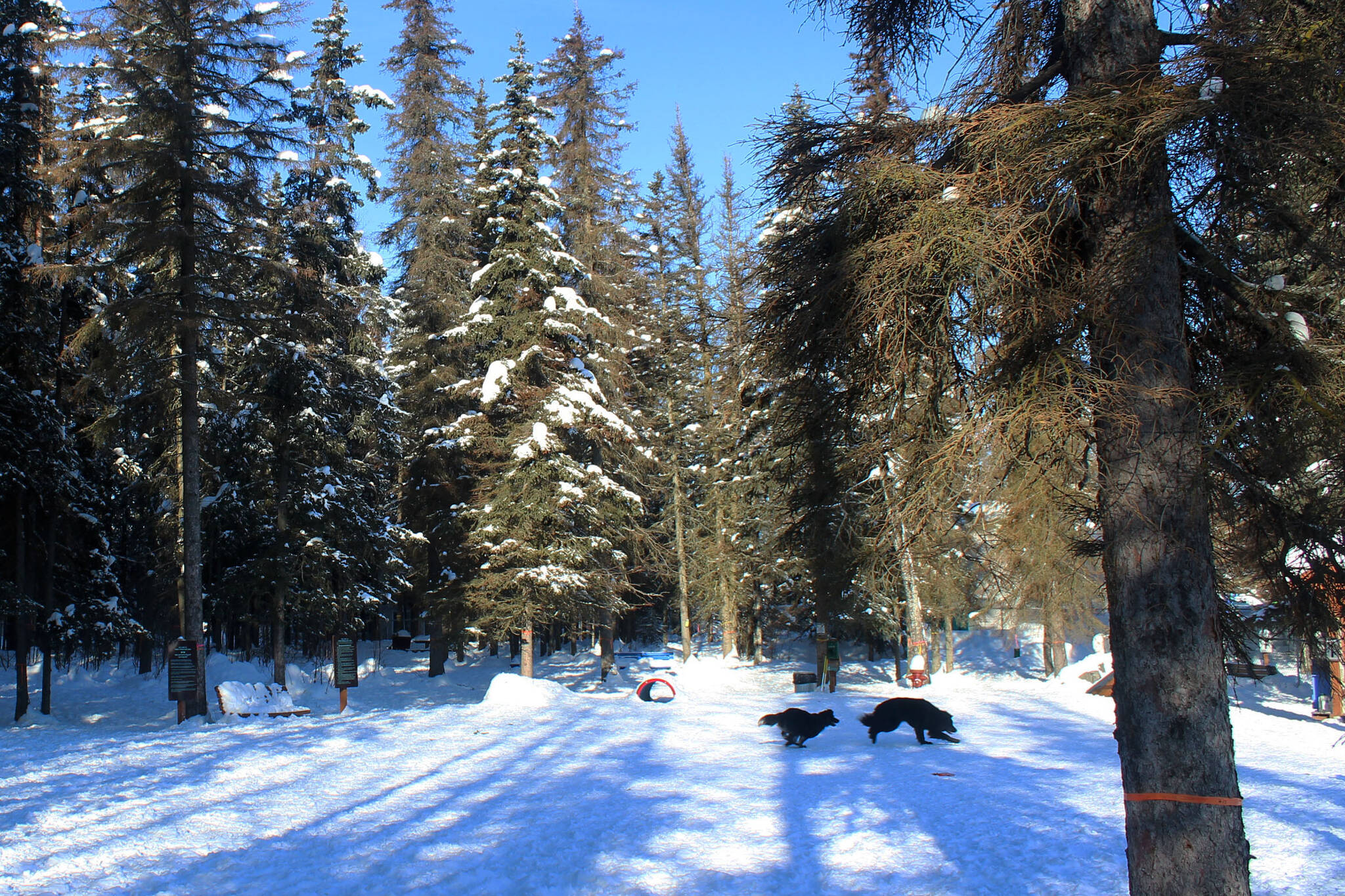The City of Soldotna is considering whether or not to take spruce bark beetle mitigation into its own hands. Legislation up for consideration by the Soldotna City Council on Wednesday would pave the way for the city to use some of its own money — including federal COVID relief funds — to conduct work ahead of summer.
The city applied in January 2020 for funds needed to remove beetle kill trees and to conduct fire hazard mitigation work, according to the resolution. That application, submitted to the federal Hazard Mitigation Grant Program through Alaska’s Division of Homeland Security and Emergency Management, described about $300,000 worth of proposed work across more than 375 acres of city land.
“It is not going to be available to effect beetle kill tree mitigation in a safe time frame,” wrote Soldotna Parks and Recreation Director Andrew Carmichael of the grant funds in an April 5 memo to Soldotna City Manager Stephanie Queen. “ … We must do something as soon as possible to reduce the chance of infrastructure or personal injuries.”
The city still expects to receive funds, but the Federal Emergency Management Agency’s processing of the application has been delayed, according to the resolution. Sites named in the legislation include Centennial Campground, Swiftwater Campground, Soldotna Memorial Park, Aspen Park, Three Friends Dog Park and Parker Park.
According to the legislation, Soldotna city staff met with state grant staff earlier this month to discuss the urgency of the project. The city was “advised” that if work begins before the grant is formally executed, that work would not be eligible for reimbursement through the program and it could put the city’s existing application at risk.
Still, the resolution says that the risk of beetle kill trees to the city has grown since the initial application was submitted. In addition to posing a continued wildfire risk, the city is now also concerned about potential windthrow, or trees that are blown over completely.
“The administration will continue to explore the potential for state or federal funds for the project, but in the event that a funding source is not identified, would seek approval to use American Rescue Plan Act ( ) funds previously appropriated,” the legislation says.
If approved, the resolution would allow Queen to issue an invitation to bid for hazard tree mitigation. In all, the City of Soldotna received just over $1 million in federal ARPA funds. At the council’s March 23 meeting, Queen told council members that none of the money had been spent yet. Council members approved during that meeting the use of up to $25,000 to help Triumvirate Theatre put on a community production, but the vote was vetoed by Soldotna Mayor Paul Whitney.
Some sites affected by spruce beetles, Carmichael wrote, can be addressed using small contractors and city staff. Other areas, such as Centennial and Swiftwater campgrounds, will need a “substantial contract and advanced equipment capabilities” in order for them to open safely for the summer, he wrote.
“The time is now to act to remove hazardous trees wherever we can,” Carmichael wrote.
He estimates that there are 900 trees that need to come down between Centennial and Swiftwater campgrounds, which could cost “upwards of $180,000.” His “conservative” estimates the work would cost around $130,000 — it can cost up to $200 per tree to fully fell and remove it from a site, Carmichael wrote.
“The beetle kill issues have not gone on hiatus though and the numbers of trees overall grows everyday,” he wrote. “We are presently requesting the monies we would have received from the grant to effect eminent needed mitigation work.”
The Soldotna City Council’s Wednesday night meeting can be streamed live via Zoom and will be available to watch on the city’s website.
As of 2020, more than 150,000 acres of forest had been impacted by spruce bark beetle infection on the Kenai Peninsula, including about 21,000 acres of forested land between Cooper Landing, Kenai and Soldotna, according to the Kenai Peninsula Borough.
Reach reporter Ashlyn O’Hara at ashlyn.ohara@peninsulaclarion.com.

